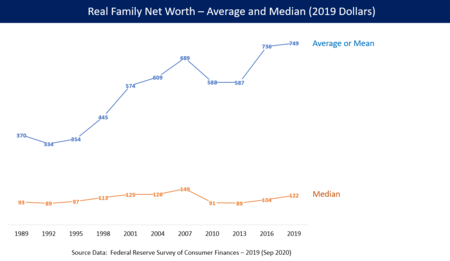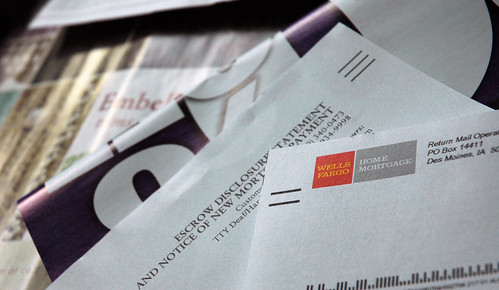Possibilities are, you have actually seen commercials boasting the benefits of a reverse home loan: "Let your home pay you a month-to-month dream retirement earnings!" Sounds wonderful, best? These claims make a reverse home loan noise almost too great to be true for senior homeowners. But are they? Let's take a better look. A reverse home mortgage is a type of loan that uses your house equity to provide the funds for the loan itself.
It's basically an opportunity for senior citizens to use the equity they've built up over many years of paying their home mortgage and turn it into a loan for themselves. A reverse mortgage works like a routine home mortgage in that you need to apply and get authorized for it by a lender.

However with a reverse mortgage, you do not pay on your house's principal like you would with a regular mortgageyou take payments from the equity you've constructed. You see, the bank is providing you back the cash you've currently paid on your house however charging you interest at the very same time.
Seems simple enough, cancel siriusxm phone number right? However here comes the cringeworthy fact: If you pass away prior to you've sold your house, those you leave are stuck to 2 http://marcobkkr921.huicopper.com/h1-style-clear-both-id-content-section-0-how-do-down-payments-work-on-mortgages-for-beginners-h1 options. They can either pay off the complete reverse home loan and all the interest that's stacked up over the years, or surrender your home to the bank.
Like other kinds of mortgages, there are various types of reverse mortgages. While they all basically work the exact same way, there are 3 primary ones to learn about: The most common reverse mortgage is the House Equity Conversion Mortgage (HECM). HECMs were developed in 1988 to assist older Americans make ends satisfy by allowing them to use the equity of their homes without needing to move out.
The 6-Minute Rule for Who Took Over Washington Mutual Mortgages
Some folks will use it to spend for expenses, getaways, house restorations and even to settle the staying amount on their regular mortgagewhich is nuts! And the consequences can be big. HECM loans are kept on a tight leash by the Federal Real Estate Administration (FHA.) They do not want you to default on your home mortgage, so since of that, you won't get approved for a reverse mortgage if your house is worth more than a particular quantity.1 And if you do get approved for an HECM, you'll pay a hefty mortgage insurance coverage premium that protects the lender (not you) versus any losses - how do reverse mortgages really work.
They're provided up from privately owned or operated companies. And since they're not managed or insured by the government, they can draw property owners in with promises of higher loan amountsbut with the catch of much greater interest rates than those federally guaranteed reverse home mortgages. They'll even offer reverse mortgages that permit property owners to borrow more of their equity or consist of houses that go beyond the federal maximum quantity.
A single-purpose reverse mortgage is used by government companies at the state and regional level, and by not-for-profit groups too. It's a type of reverse home loan that puts rules and constraints on how you can utilize the money from the loan. (So you can't invest it on an expensive trip!) Generally, single-purpose reverse home mortgages can only be used to make home tax payments or spend for home repair work.
The thing to keep in mind is that the lending institution needs to approve how the money will be utilized before the loan is given the OK. These loans aren't federally guaranteed either, so lending institutions do not need to charge home loan insurance coverage premiums. However since the cash from a single-purpose reverse home mortgage needs to be utilized in a specific way, they're normally much smaller sized in their quantity than HECM loans or proprietary reverse home mortgages.
Own a paid-off (or a minimum of substantially paid-down) home. Have this house as your primary home. Owe no federal debts. Have the capital to continue paying real estate tax, HOA fees, insurance coverage, upkeep and other home costs. And it's not simply you that needs to qualifyyour home likewise has to satisfy particular requirements.
About How Do Reverse Mortgages Really Work

The HECM program also enables reverse home mortgages on condominiums approved by the Department of Real Estate and Urban Advancement. Prior to you go and sign the documents on a reverse home loan, examine out these 4 major drawbacks: You may be thinking about Go here taking out a reverse home mortgage since you feel great loaning versus your house.
Let's break it down like this: Think of having $100 in the bank, but when you go to withdraw that $100 in cash, the bank just offers you $60and they charge you interest on that $60 from the $40 they keep. If you would not take that "deal" from the bank, why in the world would you wish to do it with your house you've spent years paying a home mortgage on? But that's exactly what a reverse home mortgage does.
Why? Since there are costs to pay, which leads us to our next point. Reverse home loans are filled with extra costs. And many borrowers opt to pay these charges with the loan they will getinstead of paying them expense. The thing is, this expenses you more in the long run! Lenders can charge up to 2% of a home's value in an paid up front.
So on a $200,000 house, that's a $1,000 annual cost after you've paid $4,000 upfront obviously!$14 on a reverse mortgage resemble those for a routine home loan and consist of things like house appraisals, credit checks and processing costs. So prior to you know it, you have actually drawn out thousands from your reverse mortgage before you even see the very first cent! And since a reverse home loan is only letting you use a portion the worth of your home anyhow, what occurs when you reach that limitation? The cash stops.
So the quantity of cash you owe increases every year, every month and every day until the loan is settled. The advertisers promoting reverse home mortgages love to spin the old line: "You will never ever owe more than your home deserves!" But that's not precisely true since of those high interest rates.
The Main Principles Of What Percentage Of Mortgages Are Fha
Let's say you live till you're 87. When you pass away, your estate owes $338,635 on your $200,000 home. So instead of having a paid-for home to pass on to your enjoyed ones after you're gone, they'll be stuck to a $238,635 expense. Chances are they'll have to sell the house in order to settle the loan's balance with the bank if they can't afford to pay it.
If you're spending more than 25% of your earnings on taxes, HOA costs, and family bills, that indicates you're house bad. Reach out to among our Backed Local Suppliers and they'll assist you browse your options. If a reverse home loan loan provider tells you, "You won't lose your home," they're not being straight with you.
Believe about the reasons you were considering getting a reverse home loan in the first location: Your spending plan is too tight, you can't afford your daily bills, and you don't have anywhere else to turn for some extra cash. Suddenly, you have actually drawn that last reverse home mortgage payment, and after that the next tax bill happens.